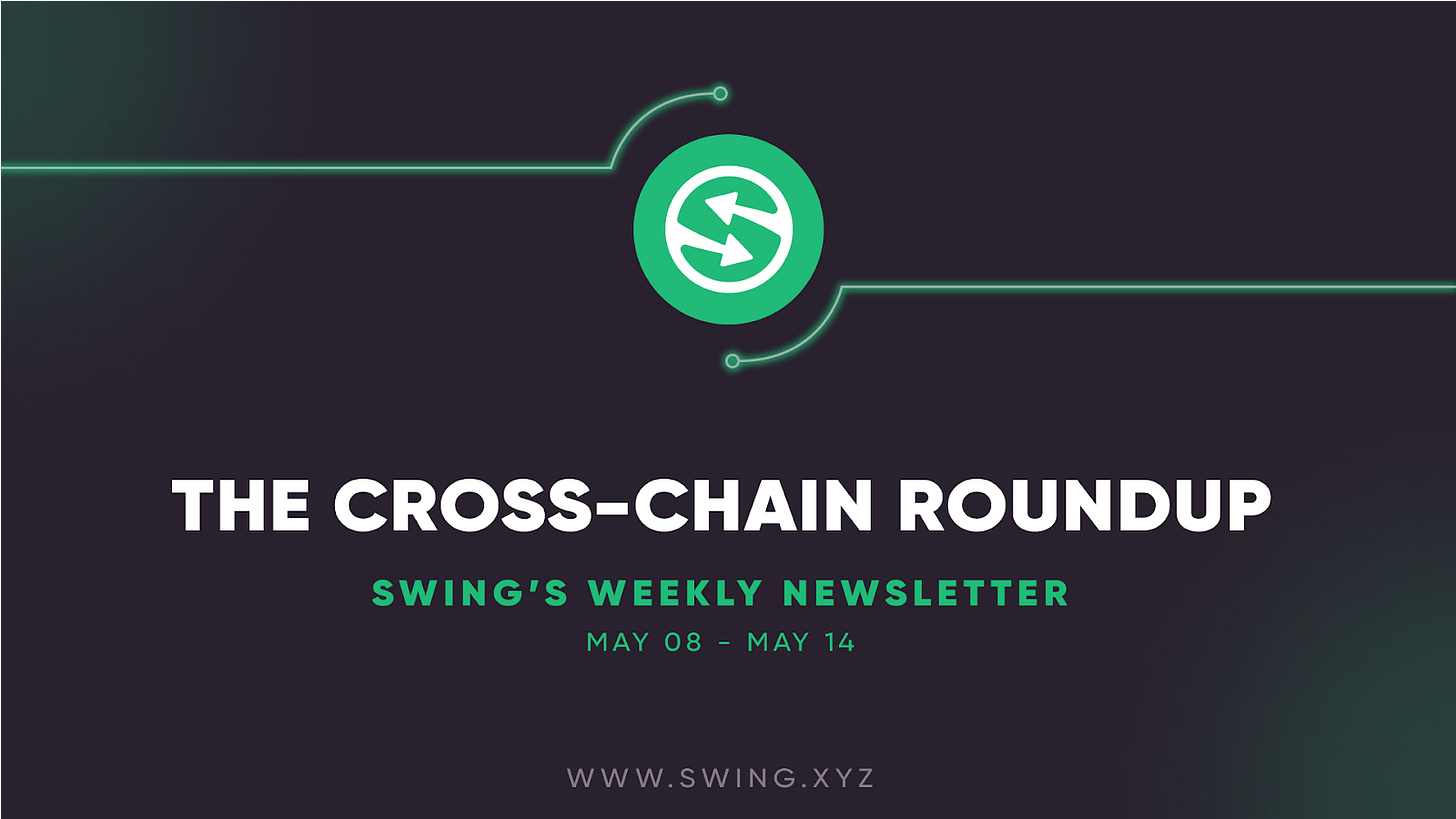Welcome to this week's newsletter! Last week was packed with exciting developments in the cross-chain ecosystem, showcasing the relentless innovation and progress happening in the industry. From the approval of an incentive program for cross-chain Bitcoin liquidity to the launch of Cosmos-based chain Neutron, and the integration of Chainlink Functions on Avalanche Fuji, there's plenty to dive into.
Additionally, DeBridge unveiled their DLN API for breakthrough cross-chain performance, the first dApp on zkRouter went live, and DeFiLlama introduced LlamaNodes, a powerful solution against MEV attacks. Read on to catch up on all these noteworthy advancements shaping the future of cross-chain interoperability!
Happy reading!
📰Cross-Chain Updates
tBTC and Wormhole are collaborating to enable cross-chain Bitcoin liquidity and expand tBTC's reach to over 20 ecosystems. The agreement involves bridging capabilities and a planned liquidity bootstrapping campaign aiming to bridge up to 26,000 BTC. With strong community support and approval from the Threshold DAO, this integration allows tBTC, a decentralized and scalable Bitcoin equivalent, to be transferred across various EVM chains and non-EVM chains, facilitating access to the broader cross-chain DeFi ecosystem.
Neutron, a new blockchain network in the Cosmos ecosystem, will go through a launch period, warm-up phase, launch event, and network initialization. During the warm-up period, the network will be thoroughly tested, and a temporary admin multisig called the Rescueeer will address any potential issues. The launch event will introduce the NTRN token, with mechanisms like airdrops, liquid auctions, and lockdrops, leading to the network's maturity and the full functionality of the Neutron DAO.
Chainlink Functions has been launched on the Avalanche Fuji testnet, enabling Web3 developers to easily connect their smart contracts with existing Web2 APIs and cloud services. This integration allows for the creation of more sophisticated applications that combine the benefits of both Web3 and Web2 technologies, opening up new possibilities in the blockchain ecosystem. Chainlink Functions acts as a decentralized compute runtime, offering extensive connectivity, customizable computation, trust-minimized security, and a self-service platform for developers.
deBridge has launched the DLN API, which offers decentralized applications (dApps) a simple solution for enabling lightning-fast cross-chain liquidity transfers. By abstracting the complexities of cross-chain functionality, dApps can provide users with a seamless trading experience across different blockchains, with faster transaction settlement, low fees, and access to deeper liquidity. This opens up new possibilities for building innovative cross-chain applications and primitives in the blockchain space.
zkRouter is a trustless and general cross-chain infrastructure built using zero-knowledge proof (ZKP) technology. With the launch of its testnet and the first dApp, a cross-chain bridge, users can now try out the Ethereum Goerli to Fantom bridge. zkRouter offers trustlessness, higher transaction throughput, and lower gas fees through its ZKP-based consensus transfer mechanism, bringing the cross-chain field to a new level of efficiency and security.
6.DeFiLlama releases LlamaNodes, protecting users from MEV attacks
LlamaNodes has introduced two new features for its users: MEV Protect and MEV Boost. MEV Protect aims to safeguard Ethereum transactions against frontrunning and sandwich attacks, providing increased security. MEV Boost redistributes MEV profits to users, allowing them to earn rewards by utilizing LlamaNodes Premium RPCs. These features are now available by default for all LlamaNodes RPC users, ensuring enhanced transaction protection and potential financial gains.
Following two incidents of block finalization issues on the Ethereum Beacon Chain within a 24-hour period, Ethereum core developers have released patches for Prysm Labs and Teku clients. The problems caused delays in confirming transactions and prevented block finalization for a total of over an hour. The Ethereum Foundation identified the high load on certain Consensus Layers clients as the cause of the issue, which has now been addressed with the patches.
MakerDAO has launched the Spark Protocol, a lending solution for users of its stablecoin, DAI. The protocol serves as a lending marketplace, allowing users to supply and borrow various cryptocurrencies such as Ether, staked stETH, DAI, and staked sDAI. It aims to provide competitive interest rates and is linked to Maker's D3M system, enabling users to access DAI borrowing at a starting annual rate of 1.11%.
📊Bridge Stats
Key data insights from the bridging ecosystem in the past week👇
7-Day Bridge Statistics
Daily Active Users
Total Bridge Fees Collected
Total Value Locked
Disclaimer: Bridges covered are Stargate, Synapse, Across, Connext, Hop Protocol, Ren, and Allbridge. Data sourced from Token Terminal.
📜Interesting Reads
How will Ethereum's multi-client philosophy interact with ZK-EVMs? - by Vitalik Buterin
🐦Twitter Spaces
👨💻 Get Started with Swing Today
📓 Learn more about Swing:
Website | Docs | Developer Hub
👥 Join the community:






